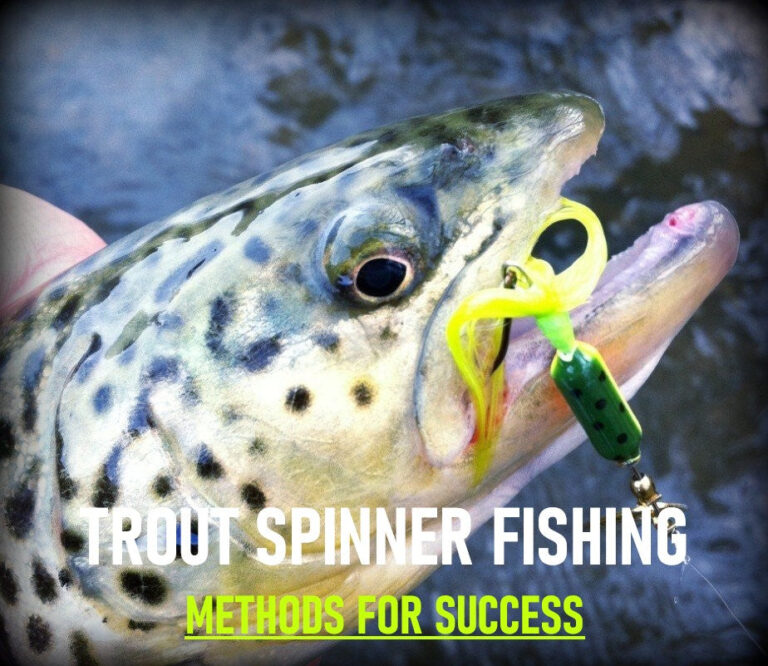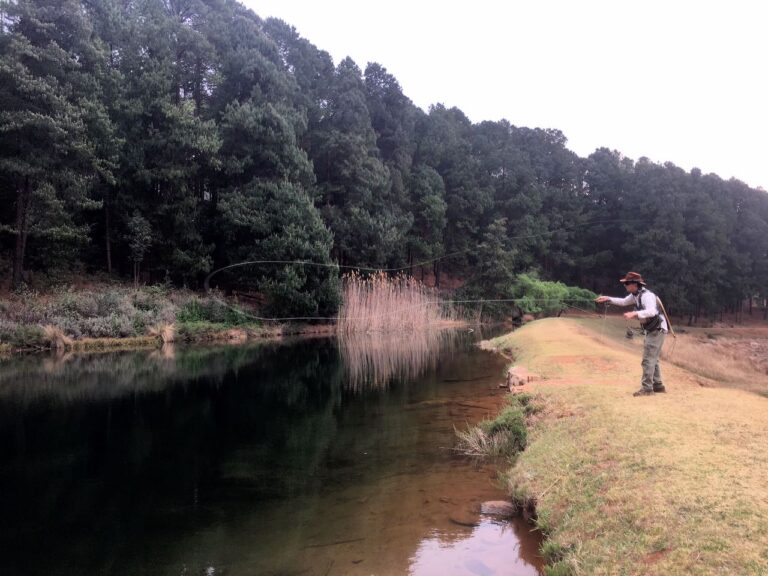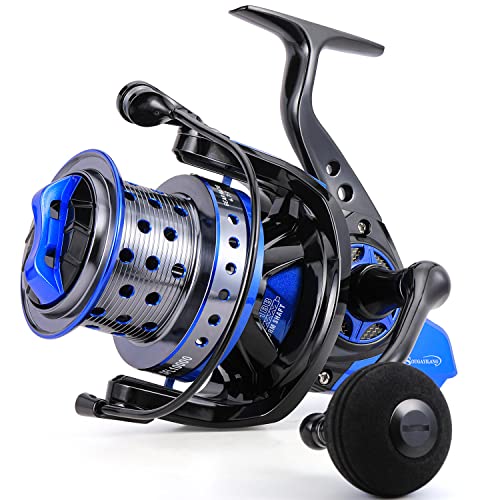Yes, deep sea fishing can be dangerous due to unpredictable weather conditions and the potential risks associated with being far from shore. Deep sea fishing involves venturing into open waters, where strong currents, high waves, and sudden storms can occur, posing a threat to both the boat and its occupants.
Additionally, the remote location and longer response times for emergency services can increase the risks in case of accidents or medical emergencies. Therefore, it is crucial for individuals engaging in deep sea fishing to ensure they are equipped with proper safety gear, follow all safety protocols, and have an experienced captain or guide to minimize the dangers and ensure a safe fishing experience.

Credit: www.autospyders.com
Understanding The Potential Risks Involved
Deep sea fishing is a thrilling adventure that allows enthusiasts to explore the vastness of the ocean while reeling in impressive catches. However, it’s important to acknowledge that this activity involves certain risks. Before embarking on your deep sea fishing excursion, it’s crucial to understand the potential risks associated with this adrenaline-pumping sport.
Let’s delve into the common accidents, injuries, and dangerous weather conditions that you may encounter while deep sea fishing.
Taking A Closer Look At Deep Sea Fishing Accidents
Deep sea fishing, like any recreational activity, has its fair share of accidents that can occur. Understanding these accidents can help you prepare and minimize the risks. Here are some key points to consider:
- Boat collision: Accidents involving collisions with other boats can happen, especially in crowded fishing areas or during treacherous weather conditions. Always remain vigilant and aware of your surroundings to avoid such incidents.
- Slip and falls: The rocking motion of the boat combined with slippery decks can result in slips, trips, and falls. This risk can be mitigated by wearing suitable footwear with slip-resistant soles and adhering to safety guidelines on board.
- Hook injuries: Mishandling hooks or being accidentally hooked by fellow anglers can result in puncture wounds or tearing of the skin. Stay cautious when handling sharp fishing hooks and be mindful of other anglers nearby.
- Fishing line entanglement: The fishing line, especially during intense moments, can easily become tangled around limbs or cause cuts and lacerations. Pay attention to the movement of the line and take necessary precautions to prevent entanglement.
Examining The Common Injuries Associated With Deep Sea Fishing
While deep sea fishing accidents can cause various injuries, there are some common ones that anglers often encounter. Consider the following points:
- Cuts and puncture wounds: Handling fish, hooks, or fishing gear can lead to cuts and puncture wounds. Proper handling techniques and wearing protective gloves can reduce the risk of these injuries.
- Back and muscle strains: The physical demands of deep sea fishing, such as casting heavy lines or reeling in big catches, can strain your back and muscles. Maintaining proper form and taking breaks when needed can help prevent these injuries.
- Seasickness: The rolling motion of the boat can cause nausea and dizziness, resulting in seasickness. Taking appropriate medication or using anti-seasickness remedies can alleviate these symptoms.
- Dehydration and sunburn: Spending hours under the scorching sun without proper hydration or sun protection can lead to dehydration and severe sunburn. Staying hydrated and applying sunscreen are essential to avoid these injuries.
The Dangers Of Extreme Weather Conditions At Sea
One of the most significant risk factors associated with deep sea fishing is the unpredictable weather conditions that can arise while you’re out on the water. Here’s what you should know:
- Storms and high winds: Sudden storms and strong winds can create hazardous conditions, making navigation difficult and increasing the risk of accidents and capsizing. Pay attention to weather forecasts and consult with experienced captains before venturing out.
- Ocean swells and rough seas: Large waves and rough seas can pose a threat to the stability of the boat, potentially leading to accidents or individuals being thrown overboard. Understanding how to navigate these conditions and wearing proper safety equipment, such as life jackets, is crucial.
- Fog and reduced visibility: Dense fog can impair visibility, making it challenging to navigate or spot other boats. In such conditions, exercise extreme caution and utilize necessary safety equipment, such as radar and navigational aids.
By understanding the potential risks involved in deep sea fishing, you can better prepare yourself for a safe and enjoyable adventure on the open water. Remember to prioritize your safety, follow safety guidelines, and always be cautious while indulging in this thrilling activity.
Stay informed, stay prepared, and have a fantastic deep sea fishing experience!
Preparing For A Safe And Enjoyable Deep Sea Fishing Trip
Choosing The Right Boat And Captain: Ensuring Safety Comes First
When planning a deep sea fishing trip, one of the key factors to consider is choosing the right boat and captain. Safety should always be the top priority, so here are some important points to keep in mind:
- Research different charter boats and captains in the area to find one with a good reputation for safety.
- Look for boats that are well-maintained and equipped with the necessary safety features.
- Ensure that the captain holds the required licenses and certifications for deep sea fishing.
- Read reviews and testimonials from previous customers to get an idea of the captain’s professionalism and commitment to safety.
Equipping Yourself With The Essential Safety Gear
Deep sea fishing can be an exhilarating experience, but it’s crucial to have the right safety gear on board. Here are some essential items to bring with you:
- Life jackets: Ensure that there are enough life jackets for everyone on board and that each person wears one when necessary.
- First aid kit: Have a well-stocked first aid kit on board in case of any minor injuries or medical emergencies.
- Flares and signaling devices: These are essential in case of an emergency to attract attention and signal for help.
- Vhf radio: A vhf radio allows you to communicate with other boats and the coast guard in case of emergencies.
- Fire extinguisher: Keep a fire extinguisher on board to address any potential fire hazards.
Knowing The Importance Of Proper Training And Experience
Deep sea fishing can be a challenging and unpredictable activity. Having the proper training and experience is essential to ensure a safe and enjoyable trip. Consider the following points:
- Hire a captain and crew who are experienced in deep sea fishing and are knowledgeable about the local waters.
- Familiarize yourself with the specific fishing techniques and safety protocols for deep sea fishing.
- Take a fishing safety course or seek guidance from experienced anglers to enhance your knowledge and skills.
- Be aware of weather conditions and how they may impact your fishing trip. Always listen to the advice of your captain regarding safety precautions.
By prioritizing safety and taking the necessary precautions, you can ensure that your deep sea fishing trip is not only thrilling but also safe and enjoyable. Remember to choose the right boat and captain, equip yourself with essential safety gear, and have the proper training and experience for a successful adventure on the open waters.
Mitigating Risks And Ensuring A Safe Deep Sea Fishing Experience
Deep sea fishing is an exhilarating and thrilling experience that can provide unforgettable memories. However, like any activity involving the great outdoors and nature’s unpredictable elements, there are potential risks involved. It is essential to understand these risks and take necessary precautions to ensure a safe deep sea fishing experience.
In this section, we will discuss key measures to mitigate risks and maximize safety during your deep sea fishing adventure.
Proper Handling Of Fishing Equipment And Tools
When it comes to deep sea fishing, having the right fishing equipment and tools is crucial. Here are some key points to keep in mind for proper handling:
- Always handle fishing rods, hooks, and lines with care to prevent injury.
- Ensure that fishing rods and reels are properly maintained and in good working condition.
- Familiarize yourself with the correct techniques for casting, reeling, and handling the fishing equipment.
- Always follow the instructions provided by the manufacturer for safe and proper use of fishing gear and tools.
- Use protective gear like gloves and safety glasses when handling sharp hooks and cutting tools.
- Store fishing equipment securely to prevent accidents and ensure they are in good condition for future use.
By adhering to these guidelines, you can minimize the risks associated with handling fishing equipment and tools, ensuring a safer and more enjoyable deep sea fishing experience.
Staying Alert: Safety Measures To Avoid Accidents On The Boat
When out at sea, it is crucial to stay vigilant and adopt safety measures to prevent accidents. Here are some important points to consider:
- Always listen to and follow the instructions given by the captain or boat crew. They are experienced in navigating and handling the boat safely.
- Be aware of your surroundings and watch out for any potential hazards such as slippery surfaces or loose objects on the boat.
- Wear a life jacket at all times, especially when the boat is moving or during rough weather conditions.
- Make sure to have a first aid kit readily available on board in case of any minor accidents or injuries.
- Avoid consuming excessive alcohol or substances that can impair your judgment and coordination.
- Take precautions during extreme weather conditions and always prioritize your safety over the fishing expedition.
By staying alert, following safety instructions, and being aware of potential risks, you can minimize accidents and ensure a safe deep sea fishing experience for yourself and others aboard.
Understanding And Adhering To Fishing Regulations And Limits
Another crucial aspect of deep sea fishing safety is understanding and adhering to fishing regulations and limits. Here’s what you need to know:
- Familiarize yourself with the fishing regulations and limits specific to your location. These regulations may include size limits, bag limits, seasonal restrictions, and protected species.
- Obtain any necessary fishing licenses or permits required in your area before embarking on your deep sea fishing adventure. Ensure you have them readily available when needed.
- Practice catch-and-release techniques whenever possible, especially for protected or endangered species. Handle the fish with care and release them back into the water quickly and safely.
- Respect fishing zones and protected areas to preserve the marine ecosystem and maintain the balance of marine life.
By understanding and adhering to fishing regulations and limits, you contribute to the conservation and sustainability of the ocean, ensuring a rewarding and ethical deep sea fishing experience.
Remember, mitigating risks and ensuring a safe deep sea fishing experience is paramount. By following these key measures for proper equipment handling, staying alert on the boat, and understanding fishing regulations and limits, you can enjoy the adventure of deep sea fishing while prioritizing safety and conservation.
So, gear up, prepare yourself, and embark on an unforgettable deep sea fishing journey with confidence.
Conclusion
Overall, deep-sea fishing can be an exhilarating and rewarding experience for those who are adventurous and seek a deeper connection with the ocean. However, it is important to acknowledge that this activity also comes with its fair share of risks.
From unpredictable weather conditions to potential accidents, deep-sea fishing poses danger that should not be taken lightly. Nevertheless, with proper planning, preparation, and adherence to safety measures, these risks can be minimized significantly. By choosing a reputable and experienced charter company, ensuring the availability of safety equipment, and following the guidance of the crew, deep-sea fishing can be enjoyed in a safe and secure manner.
It is crucial to remember that nature can be unpredictable, and it is always better to err on the side of caution. So, if you decide to embark on a deep-sea fishing adventure, be prepared, respect the sea, and prioritize safety above all else.




